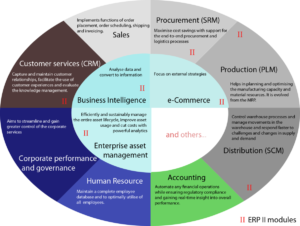
I could never stress enough the value for a company of having its accounting – and associated ledgers – in order. There are, unfortunately, still too many companies out there that operate without enough visibility, for example, not knowing in a timely manner such fundamental information as the rotation of their inventories, the impact stock outs have on their bottom line, details of what their customers have been purchasing and when, or even who are their best salespeople and why.
If these key metrics (and many more) are extremely valuable to identify your competitive advantages and further fuel your growth, they are also critical to properly planning and executing the sale of your company. More often than not, getting good and reliable detailed data on sales, costs, and inventories proves to be a challenge. Sometimes, even getting an Accounts Receivable/Payable Aging report is an issue, with amounts not tying to the balance sheet values and no one able to clearly explain why or reconcile the two values.
[yes, all of these points are a reflection of many real life situations].
So, how to keep things organized?
 Enterprise Resource Planning (ERP) systems have gained popularity in the last decades among mid-market and large firms. Lately, good solutions have been developed for Small and Medium Businesses (SMB) as well from such global players as SAP or SAGE as well as, oftentimes, from smaller, more niche-focused groups.
Enterprise Resource Planning (ERP) systems have gained popularity in the last decades among mid-market and large firms. Lately, good solutions have been developed for Small and Medium Businesses (SMB) as well from such global players as SAP or SAGE as well as, oftentimes, from smaller, more niche-focused groups.
Naturally, implementing an ERP is no small task and remains for most companies a large investment to make. Nonetheless, in a world where data is key, knowing your business in its finest details often times pays off in the long run.
Make or Buy?
I’ve worked with many lower mid-market firms that run their operations on in-house software. Typically, these in-house IT systems were developed many years (even decades) ago and have received ever since incremental changes over time to add new features requested by management, fix bugs or scale the architecture to new standards.
 In a few cases, I’ve even seen such software written in a programming language that pretty much stopped existing years ago, making any new changes to the beast pretty much an impossible task. Think of it like hiring a good sales rep that can pitch your products exclusively in Latin… not so easy to find, right? Well, finding a relatively young programmer that can write COBOL or FORTRAN (just to name a few) to keep your system up to date with fixes and additions for the next 15 years is equally as tough (and we’re not even talking about skills at programming it here).
In a few cases, I’ve even seen such software written in a programming language that pretty much stopped existing years ago, making any new changes to the beast pretty much an impossible task. Think of it like hiring a good sales rep that can pitch your products exclusively in Latin… not so easy to find, right? Well, finding a relatively young programmer that can write COBOL or FORTRAN (just to name a few) to keep your system up to date with fixes and additions for the next 15 years is equally as tough (and we’re not even talking about skills at programming it here).
Is it always that way? No, of course not. I’ve worked with many companies that have clean, well thought, systems developed in-house that deliver top quality reports, can scale with the business and are kept up to date by a team of talented programmers in languages that – for now at least – are here to stay.
My point on this topic can be summed up as follows: if you’re going to use your system in a way that pretty much all ERP-equipped companies use it, why bother going through the painful path of developing it yourself? There are many excellent options out there, at all price levels, that have been thoroughly thought through for years by a company whose job is to develop this kind of systems. They are gone through the trial and errors, identified best practices throughout the years, and, for having many customers running the same platform, they can afford to have a larger team of developers, testers and other software engineers to deliver solid solutions and rapid fixes to bugs.
I would only see the value of building yourself your IT system if it could give you (or maintain) a solid competitive advantage over your peers. Even then, there might be a value in purchasing a platform and building upon it those custom modules versus starting all from scratch.
Why is that topic relevant on an M&A-related blog?
Simply because, in today’s world, data is key. If you like a company but the more you receive information, the less it ties to prior reports reviewed, how much would you trust the numbers you have in front of you? If you feel that you can’t trust even the sales figures, how much of a premium would you be willing to pay for that company? Are you even going to make an offer under these conditions?
Now, if I told you that all the historical data will be pretty much lost post acquisition because integrating the seller’s IT systems into yours is just too cost prohibitive (or because there is NO “seller’s IT system” in place), would that be another drop in the valuation?
If you’re on the selling side, do not underestimate these considerations. For someone to be willing to give you a high premium for your company, they are to picture the upside they’ll experience post-acquisition. Most of the times, without proper data on historical performance, it’s much harder to get there.
Image Credits: Pixabay, Shing Hin Yeung – Own work, Claus Rebler.
